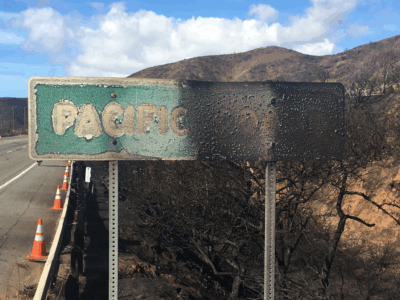How Should Law Schools Teach Land Use?

I haven’t taught Land Use for a few years, but under pressure from the administration, I’m gearing up to teach it again a year from now. And I’m going to need that time to figure it out, because it’s a little frustrating teaching it in the traditional way.
To the extent that there is a “traditional” land use curriculum, it seems to center on two things: Takings and standards of review. The first is self-explanatory, and the second basically comprises everything else, because virtually all other doctrinal areas turn on review standards. Will a court look at a Conditional Use Permit with more deference than a Variance? If a city doesn’t have any affordable housing, how closely will a court scrutinize its justifications?
The problem with both areas is that they get old quickly. Much of Takings law is covered in first-year Property, and parsing different review standards is the 21st century equivalent of how many angels can dance on the head of a pin.
Alternatively, one could closely examine some of the state statutes governing land use: in California, that would be CEQA and, say, SB 375. Is that better? And if students won’t practice in California, is that really serving them well?
Moreover, the doctrinal emphasis seems to take the heart out of land use practice, namely, its status as a sort of applied politics. Land use lawyers litigate, of course, but in many circumstances they are either trying to get entitlements or trying to stop someone else from getting the entitlements. That won’t be covered in a traditional case-method format.
I’m skeptical of the standard live-client clinical format as well: land use matters can run for years, and do not fit well into the 14-week semester.
So now, I’m thinking that Land Use might best be taught through a sort of simulation clinical model, of the sort pioneered here at UCLAW. Instead of giving students a case about zoning, say, you would give them a client, and a zoning code: what should the client do? Although you couldn’t give them an entire EIR, and it would be an Eighth Amendment violation if you did, you could prepare a sort of Executive Summary, with alternatives, impacts, and community comments. And there could also be a series of details concerning the City Council of the municipality you are working on. In all, it would give the students a much better sense of how a land use problem actually works.
The biggest downside, as I see it, is that it would be a hell of a lot of work to put together. But I’ve got a year, and besides, I think that members of the local land use bar, as well as developers and community groups, might have some case files that I could edit and put together. In the end, it would be like the original case method, not from Harvard Law School, but from Harvard Business School.
How does it sound? If you are a practitioner, would it have helped you? If you are a professor, are there any good models?
Reader Comments
One Reply to “How Should Law Schools Teach Land Use?”
Comments are closed.







I use Funk, Shapiro and Weaver’s book to teach Administrative law, and that book is problem based and uses something like the model you suggest: it describes a short case – almost always modeled after a real one – and gives some materials. It starts with client based work and moves on, and much of it is not court-centered. I’ve done a series of simulations with students in class in which a group prepares a simulation, presents to the class, and the class votes on each issue in the simulation (the class was sometimes the relevant agency decision maker, sometimes a judicial body when we discussed judicial review, sometimes a law firm team preparing an argument, in which case the sides were arguing how to present it, and once aliens from the planet Kuzbaine). Several comments:
A. The students do really good work on simulations.
B. The class is very involved – not only those presenting.
C. It is a lot of work for you if you need to prepare the materials; It is a lot of work for the students too, so I don’t know if you want to have them all prepare the simulation every time – consider rotating: it’s easier if there is a decision making body, but it’s probably possible in other scenarios.
D. I found I need to end with a recap of the material and to say the things the simulation does not cover – but we never cover everything anyway, do we?
E. If you do that, I’d like to take that class.